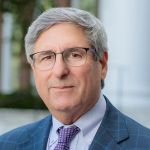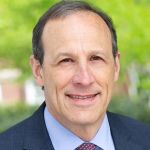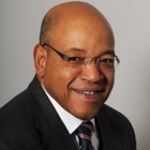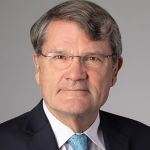Filter Results:
(132)
Show Results For
- All HBS Web
(335)
- Faculty Publications (132)
Show Results For
- All HBS Web
(335)
- Faculty Publications (132)
Page 1 of 132
Results →
Faculty
David Ager
David Ager is a Senior Lecturer in Executive Education. He engages CEOs, CHROs, and their teams to design and deliver customized executive development experiences for executive, senior and high potential leaders. The companies hail from diverse sectors including energy, fast moving consumer goods, quick service food, finance, government, media, automotive, retail, gems and jewelry, spirits and...
Faculty
David Shin
David Shin is a doctoral student in the Organizational Behavior program jointly offered by Harvard Business School and the Department of Sociology at Harvard University. His research explores how technological innovation shapes relationships at work, particularly as it relates to the formation intra-organizational networks.Prior to his doctoral studies, David worked as a Research Associate at...
Faculty
David G. Fubini
David G. Fubini is a Senior Lecturer in the Organizational Behavior Unit and leader of the Leading Professional Services Firm and Mergers & Acquisitions Programs for Harvard Business School’s Executive Education. His MBA teaching has concentrated on teaching the Organizational Behavior, Marketing, Leadership & Corporate Accountability, and Ethics required courses. For second year...
Faculty
David S. Scharfstein
David Scharfstein is the Edmund Cogswell Converse Professor of Finance and Banking at Harvard Business School, where he has taught since 2003. He currently teaches a course on financial intermediation in the MBA program. Scharfstein has written on a wide range of topics in finance, including risk management, financial distress, corporate investment, capital structure, and venture capital. His...
Faculty
David A. Moss
David Moss is the Paul Whiton Cherington Professor at Harvard Business School, where he teaches in the Business, Government, and the International Economy (BGIE) unit. He earned his B.A. from Cornell University and his Ph.D. from Yale. In 1992-1993, he served as a senior economist at Abt Associates. He joined the Harvard Business School faculty in July 1993. Professor Moss’s early research...
Faculty
David A. Thomas
David Thomas is H. Naylor Fitzhugh Professor of Business Administration at Harvard Business School. His research addresses issues related to executive development, cultural diversity in organizations, leadership and organizational change. He recently served as a professor of management at Georgetown University’s McDonough School of Business, where he served as dean from 2011 to 2016. During his...
Faculty
David B. Yoffie
Professor David B. Yoffie is the Max and Doris Starr Professor of International Business Administration at Harvard Business School. A member of the HBS faculty since 1981, Professor Yoffie received his Bachelor's degree summa cum laude and Phi Beta Kappa from Brandeis University and his Master's and Ph.D. degrees from Stanford University. Over the last two and a half decades, Professor Yoffie...
Faculty
David E. Bell
David E. Bell is a Baker Foundation Professor at HBS. He has taught marketing many times in the MBA program including as course head. During his career at HBS, David has taught a variety of other courses to both MBAs and executives, including risk management, retailing, ethics, and managerial economics. Professor Bell runs the annual Agribusiness Seminar for executives and has taught an MBA...
- 2024
- Chapter
The U.S. Secession Crisis as a Breakdown of Democracy
By: Dean Grodzins and David Moss
This chapter examines the U.S. secession crisis of 1860–1861 as a case of democratic breakdown. From December 1860 to early June 1861, eleven of the fifteen slaveholding states in the U.S. South declared secession from the Union. The trigger for the crisis was Abraham... View Details
Grodzins, Dean, and David Moss. "The U.S. Secession Crisis as a Breakdown of Democracy." Chap. 3 in When Democracy Breaks: Studies in Democratic Erosion and Collapse, from Ancient Athens to the Present Day, edited by Archon Fung, David Moss, and Odd Arne Westad, 43–107. Oxford University Press, 2024.
- 2024
- Book
When Democracy Breaks: Studies in Democratic Erosion and Collapse, from Ancient Athens to the Present Day
By: Archon Fung, David Moss and Odd Arne Westad
Democracy is often described in two opposite ways, as either wonderfully resilient or dangerously fragile. Curiously, both characterizations can be correct, depending on the context. When Democracy Breaks aims to deepen our understanding of what separates democratic... View Details
Fung, Archon, David Moss, and Odd Arne Westad, eds. When Democracy Breaks: Studies in Democratic Erosion and Collapse, from Ancient Athens to the Present Day. Oxford University Press, 2024.
- September 2020
- Case
West Side United: Hospitals Tackle the Racial Health and Wealth Gap
By: Rosabeth Moss Kanter and Paul Stramaglia
During the COVID-19 pandemic, Dr. David Ansell, Darlene Hightower, and Ayesho Jaco, leaders of West Side United (WSU), a coalition of Chicago hospitals, community residents, banks, and small businesses conceived in 2016, reviewed progress toward WSU’s goal of ending... View Details
Keywords: COVID; COVID-19; Hospital; Coalition; Health Pandemics; Race; Health; Wealth and Poverty; Equality and Inequality; Change; Leadership; Chicago
Kanter, Rosabeth Moss, and Paul Stramaglia. "West Side United: Hospitals Tackle the Racial Health and Wealth Gap." Harvard Business School Case 321-026, August 2020.
- 2020
- Other Unpublished Work
The U.S. Secession Crisis as a Breakdown of Democracy
By: David Moss and Dean Grodzins
Keywords: United States
- 2017
- Book
Democracy: A Case Study
By: David Moss
Democracy: A Case Study invites readers to experience American history anew and come away with a deeper understanding of the greatest strengths and vulnerabilities of the nation’s democracy as well as its resilience over time. The book adapts the case method to... View Details
Keywords: Democracy; Political Economy; Constitution; Productive Tension; Culture Of Democracy; E Pluribus Unum; United States; History; Government and Politics; Governance; Economic Systems; United States
Moss, David. Democracy: A Case Study. Cambridge, MA: Belknap Press of Harvard University Press, 2017.
- April 2016
- Teaching Note
Whither the Weather (Company): Forecasting 2016
By: Rosabeth Moss Kanter and Jonathan Cohen
This Note was created for the purpose of aiding classroom instructors in the use of the Harvard Business School case, "Whither the Weather (Company): Forecasting 2016." As chairman and CEO, David Kenny guided the Weather Company's transformation from a cable television... View Details
- February 2016
- Teaching Note
Advanced Leadership Pathways: David Weinstein and Write the World
By: Rosabeth Moss Kanter, Tessa Natanay Hamilton and Ai-Ling Jamila Malone
Following a successful career as a lawyer, Chief Administrative Officer of Fidelity Investments, and law school instructor, David Weinstein became a 2011 Advanced Leadership Fellow at Harvard University. During his Advanced Leadership Fellowship he conceived an idea to... View Details
- February 2016 (Revised October 2017)
- Case
The Jungle and the Debate over Federal Meat Inspection in 1906
By: David Moss and Marc Campasano
In early June 1906, the House Committee on Agriculture heard testimony from two investigators appointed by President Theodore Roosevelt to verify allegations of unsanitary conditions at Chicago slaughterhouses that had appeared in Upton Sinclair's recent novel, The... View Details
- February 2016 (Revised July 2017)
- Case
A Nation Divided: The United States and the Challenge of Secession
By: David Moss and Marc Campasano
Americans elected Abraham Lincoln as the nation's first Republican president in November of 1860. Northern political leaders had formed the Republican Party only a few years before, in large measure to combat the spread of slavery. Southerners had long been wary of... View Details
Moss, David, and Marc Campasano. "A Nation Divided: The United States and the Challenge of Secession." Harvard Business School Case 716-048, February 2016. (Revised July 2017.)
- February 2016
- Case
Banking and Politics in Antebellum New York
By: David Moss and Colin Donovan
After a long period of solid Democratic control, Whigs secured a majority of seats in the New York State Assembly in 1837, the same year that a major financial panic had crippled the banking system and shaken public confidence in the state's governance. The next year,... View Details
- February 2016 (Revised August 2017)
- Case
Battle Over a Bank: Defining the Limits of Federal Power Under a New Constitution
By: David Moss and Marc Campasano
In late February, 1791, Treasury Secretary Alexander Hamilton submitted a report to President Washington defending his recent proposal for a national bank, which he hoped would bolster the American economy and assist the federal government in managing its finances.... View Details
Keywords: Governance; Central Banking; Laws and Statutes; Government and Politics; History; Public Administration Industry; United States
Moss, David, and Marc Campasano. "Battle Over a Bank: Defining the Limits of Federal Power Under a New Constitution." Harvard Business School Case 716-052, February 2016. (Revised August 2017.)
- February 2016
- Case
Debt and Democracy: The New York Constitutional Convention of 1846
By: David Moss and Dean Grodzins
On September 23, 1846, delegates to New York State's constitutional convention prepared to vote on a proposal that its principal proponent, Michael Hoffman, conceded would be “a serious change in our form of government.” The proposal would place tight restrictions on... View Details
- February 2016 (Revised April 2017)
- Case
James Madison, the 'Federal Negative,' and the Making of the U.S. Constitution
By: David Moss and Marc Campasano
On June 8th, 1787, at the Constitutional Convention in Philadelphia, delegates from across the United States began discussing a curious proposal to expand federal power over the states. James Madison of Virginia had suggested that the new constitution include a... View Details
Keywords: Governance; Law; Government and Politics; Power and Influence; History; South Carolina; Philadelphia; United States
Moss, David, and Marc Campasano. "James Madison, the 'Federal Negative,' and the Making of the U.S. Constitution." Harvard Business School Case 716-053, February 2016. (Revised April 2017.)
- February 2016 (Revised March 2018)
- Case
Labor, Capital, and Government: The Anthracite Coal Strike of 1902
By: David Moss and Marc Campasano
In late October 1902, President Theodore Roosevelt felt relieved after months of anxiety and uncertainty. Workers in Pennsylvania's anthracite coal industry had been on strike for five months, threatening to leave eastern cities in the cold without enough heating fuel... View Details
Keywords: Governance; Agreements and Arrangements; Business and Government Relations; Labor; Law; Policy; Mining; History; Mining Industry; Pennsylvania
Moss, David, and Marc Campasano. "Labor, Capital, and Government: The Anthracite Coal Strike of 1902." Harvard Business School Case 716-046, February 2016. (Revised March 2018.)
- February 2016 (Revised July 2017)
- Case
Leadership and Independence at the Federal Reserve
By: David Moss and Marc Campasano
“From the Great Depression, to the stagflation of the seventies, to the current economic crisis caused by the housing bubble, every economic downturn suffered by this country over the past century can be traced to Federal Reserve policy.” Ron Paul, a Republican from... View Details
Keywords: Government Legislation; Central Banking; Policy; Financial Crisis; Business and Government Relations; Banking Industry; Public Administration Industry; United States
Moss, David, and Marc Campasano. "Leadership and Independence at the Federal Reserve." Harvard Business School Case 716-040, February 2016. (Revised July 2017.)
- February 2016 (Revised August 2021)
- Case
Martin Luther King and the Struggle for Black Voting Rights
By: David Moss and Dean Grodzins
In January 1965, Rev. Martin Luther King, Jr., the most prominent leader of the civil rights movement in the United States, launched a campaign of civil disobedience in Selma, Alabama, to bring national attention to disenfranchisement of black voters in the South. On... View Details
Keywords: Rights; Voting; Race; Government and Politics; Conflict and Resolution; Leadership; History; Alabama
Moss, David, and Dean Grodzins. "Martin Luther King and the Struggle for Black Voting Rights." Harvard Business School Case 716-042, February 2016. (Revised August 2021.)
- February 2016 (Revised July 2017)
- Case
Race, Justice, and the Jury System in Postbellum Virginia
By: David Moss and Dean Grodzins
In December 1877, an all-white grand jury in Patrick County, Virginia, indicted two black teenagers, Lee and Burwell Reynolds, for killing a white man. After a series of trials, an all-white trial jury convicted Lee of second-degree murder and sentenced him to prison.... View Details
Moss, David, and Dean Grodzins. "Race, Justice, and the Jury System in Postbellum Virginia." Harvard Business School Case 716-047, February 2016. (Revised July 2017.)
- February 2016 (Revised February 2018)
- Case
The Battle over the Initiative and Referendum in Massachusetts (1918)
By: David Moss and Dean Grodzins
On Election Day in 1918, Massachusetts voters would have to decide not only on their preferred candidates for governor and U.S. Senator, but also whether or not to approve 19 proposed amendments to the state constitution. By far the most controversial of these would... View Details
Moss, David, and Dean Grodzins. "The Battle over the Initiative and Referendum in Massachusetts (1918)." Harvard Business School Case 716-044, February 2016. (Revised February 2018.)
- January 2016 (Revised March 2016)
- Case
Whither the Weather (Company): Forecasting 2016
By: Rosabeth Moss Kanter and Jonathan Cohen
CEO David Kenny led the transformation of the Weather Company from a television business to a Big Data technology company from 2012 until 2016, when IBM acquired its digital assets. This case discusses major decisions taken by Kenny starting in 2014 as he sought to... View Details
Keywords: Weather Company; IBM; Digital; Technology; David Kenny; Television; Weather Channel; Legacy Business; Mainstream; Newstream; Reorganization; Acquisitions; Transformation; Information Technology; Television Entertainment; Acquisition; Consolidation; Change; Leadership
Kanter, Rosabeth Moss, and Jonathan Cohen. "Whither the Weather (Company): Forecasting 2016." Harvard Business School Case 316-143, January 2016. (Revised March 2016.)
- January 2016 (Revised February 2016)
- Case
Citizens United and Corporate Speech
By: David Moss and Marc Campasano
The story of Citizens United began in late 2007, as leading members of the Republican and Democratic parties were preparing for the 2008 presidential primaries. Democrats expected a three-way contest in their party between Senator Barack Obama of Illinois, Senator (and... View Details








